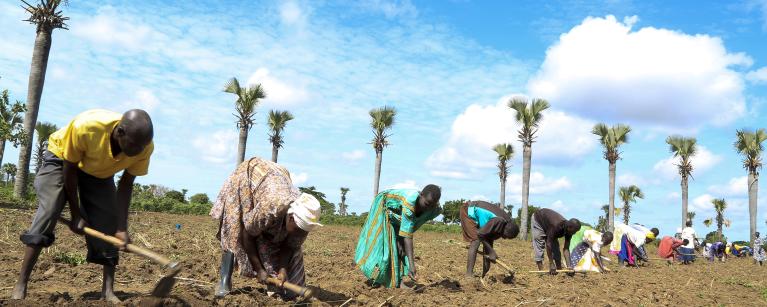Refugee Farmers Sowing Seeds of Change
Boroli refugee settlement is one of the 19 settlements that hosts refugees in the northern Uganda district of Adjumani.
First opened on January 1st 2014, in the aftermath of the civil war that broke out in South Sudan, the settlement majorly hosts South Sudanese refugees. Since refugees have access to plots of land, most have taken up farming as an alternative source of livelihood.
Some of the refugee community members formed Kadabara, a Farmer Field School (FFS) of 30 members. Through agriculture, the group attempts to improve nutrition and their livelihood.
The group was trained by ESAFF using the farmer field approach. After this, the group identified and grew a rice variety that is resistant to pests and diseases, tolerant to drought, early maturing and has a good taste and aroma when prepared.
Kadabara group obtained indigenous rice seeds from the community as well as other varieties from research institutes. In total, the group cultivated key rice varieties including China short, Wita g, Met 20, met 13, and Met 1
The seeds were simultaneously planted to compare which one would do better in terms of meeting objectives set out. Members regularly inspected the seeds and diligently took records such that at the end of the season, the group chose Met 20 rice variety because the soils and the environment was conducive for its growth.
The group is now growing the rice on a wider scale from which they supplement their diet and sell the seeds for income.
The Farmer Field Schools were created under the Sowing Diversity Equals Harvesting Security (SD=HS) project which was implemented by the trio of ESSAF Uganda, Participatory Ecological and Land Use Management (PELUM) Uganda and Oxfam in Uganda with the aim of ensuring that farmers enjoy their rights and have the capacity to access, develop and improve their food and nutrition
